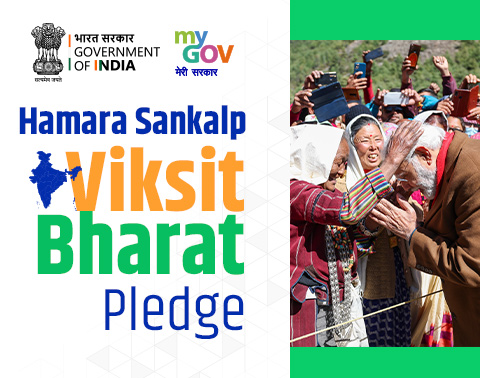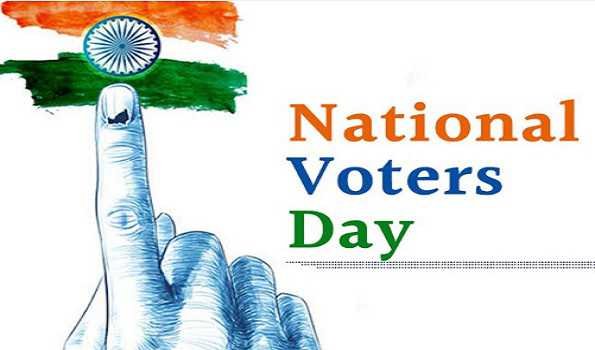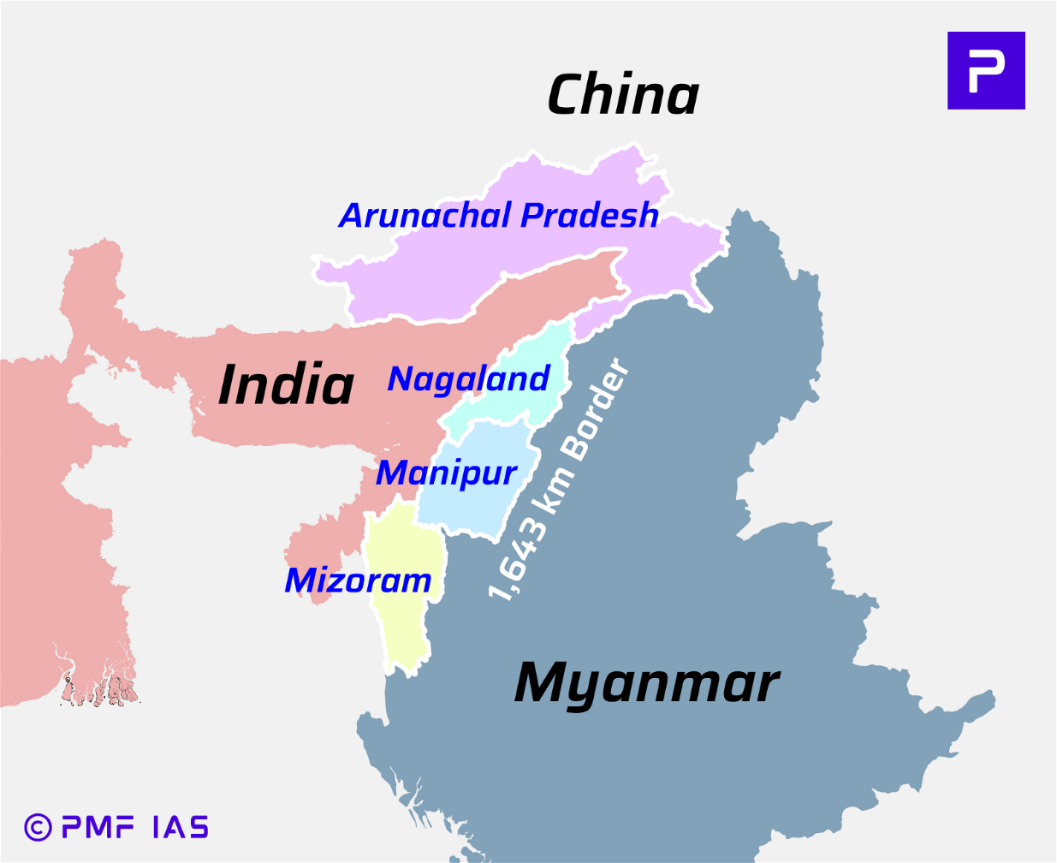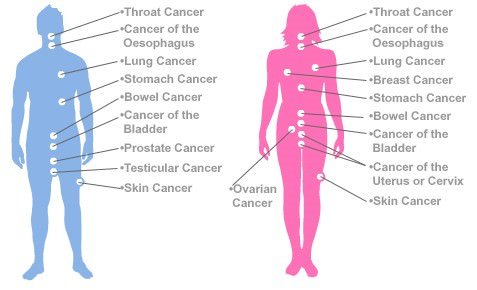
Uniform Civil Code (UCC)
Subscribers of "Current Affairs" course can Download Daily Current Affairs in PDF/DOC
Subscribe to Never Miss an Important Update! Assured Discounts on New Products!
Must Join PMF IAS Telegram Channel & PMF IAS History Telegram Channel
- Context (IE I TH I IE): The Uttarakhand UCC Bill, 2024 proposes some significant changes in marriage, adoption, and related aspects.
- Uttarakhand is the first state in India to implement such legislation after independence.
- Portuguese Civil Code – a 156-year-old Code continues to govern Goa and the UTs of Daman & Diu and Dadra & Nagar Haveli.
- After its liberation in 1961, Goa retained the Portuguese Civil Code and was the only state to have a UCC for all religions.
- The rest of India follows different personal laws based on their religious or community identity.
- Madhya Pradesh, Gujarat, and Assam have also initiated the process of formulating a UCC.
- Recently, the Allahabad HC also asked the GOI to initiate the process of implementing UCC.
Uttarakhand Uniform Civil Code
State-appointed Committee
- Led by retired SC judge Ranjana P Desai to examine and submit a draft for the implementation of a UCC.
Secular laws
- The Code borrows from laws such as The Special Marriage Act of 1954 and The Indian Succession Act of 1925.
- It repeals all family laws to the extent that they are inconsistent with it (UCC).
Objective
- To establish a legal structure that ensures consistency in civil laws for all citizens within the state, irrespective of their religion.
Provisions of the Uttarakhand UCC
Application
- To residents of the state but only to those who identify within the binary genders of male and female and who are in heterosexual relationships.
- It leaves most LGBT persons outside its ambit.
Tribal communities exempted
- The tribal communities comprising 2.9% of Uttarakhand’s population have been exempted.
Live in relationship
- Definition: “Relationship between a man and a woman who cohabit in a shared household through a relationship in the nature of marriage.”
Registration of live-in relationships
- It requires compulsory registration of live-in relationships through a “statement of live-in relationship”.
- It may be terminated by either of the parties to the live-in relationship by submitting a “statement of termination”.
- A woman is also eligible to claim maintenance in case she is “deserted” by her live-in partner.
Penalty for non-registration of live-in relationship
- After serving the notice, criminal prosecution can be initiated against the couple.
- All live-in relationships must be registered within a month, or else both partners are liable to a Rs 25,000 fine and six months in jail.
Legal recognition of children born out of wedlock (Outside the marriage)
- The Bill abolishes the concept of “illegitimate children”.
- It extends legal recognition to children born in void and voidable marriages, as well as children born in live-in relationships.
Legal equality of children
- The Code treats adopted, born through surrogacy, or born through assisted reproductive technology (ART) on an equal footing with other biological children.
- Biological Children: Illegitimate children, adopted children, children born through surrogacy and children born through ART are considered to be biological children.
Legal age for marriage
- The minimum age of marriage is 18 and 21 for Muslim women and men, in line with the Hindu Marriage Act, 1955 and the Special Marriage Act, 1954.
Registration of marriages
- Marriages have to be compulsorily registered regardless of any other existing laws or customs.
- The registration will have to be done within 60 days from the date of the marriage.
- No marriage can be dissolved without a court order, or else it can attract imprisonment for up to 3 years.
Divorce proceedings
- Men and women have been accorded similar rights with respect to divorce.
- Grounds for divorce: Adultery, cruelty, desertion, conversion to another religion, mental disorder, incurable venereal disease, renunciation of the world, absence for seven years, bigamy and failure to comply with maintenance orders.
- In case of divorce, the custody of a child up to 5 years of age remains with the mother.
Voidable marriages
- It can be annulled on grounds such as non-consummation, contravention of marriage conditions, force or coercion in obtaining consent, or pregnancy by someone other than the spouse.
Special rights for women to seek divorce
- If the husband has been found guilty of rape or any unnatural sexual offence or
- If the husband has more than one wife.
Prohibition of bigamy or polygamy
- Neither party should have a living spouse at the time of the marriage.
Degree of prohibited relationship
- Two people are considered to be within the “degrees of prohibited relationship” if a common ancestry is shared or if they are the wife/husband of a common ancestor.
- Exception: Those communities where an established custom allows marriage within the degree of prohibited relationship.
Inheritance rights
- It ensures equal rights in property for both sons and daughters, regardless of their category.
Equal property rights after death
- Following a person’s demise, the bill grants equal property rights to the spouse and children.
- Additionally, equal rights extend to the deceased person’s parents.
- In previous laws, only the mother had rights to the deceased’s property.
Coparcenary property
- It abolishes the coparcenary system, which exists under Hindu personal law.
- It extends the same scheme of succession to all persons irrespective of religion.
- All property will pass as individual property as per the scheme of intestate succession laid down under the Code.
Coparcenary Property or Self-acquired Property
|
Criminal offences under the Bill
- Child marriage and marrying within prohibited degrees of relationship have been criminalised.
- Dissolution of marriage through modes other than the judicial mode of divorce prescribed under the code is punishable with imprisonment as well as a fine.
- Compelling, abetting, or inducing any person to observe any condition for remarrying is also punishable with imprisonment of up to 3 years.
- Non-registration of live-in relationships has been criminalised.
|
What are the cons of the bill?
Non-recognition of queer relationship
- The bill leaves out the members of the LGBTQIA+ community; It, however, follows the SC verdict and denies equality of marriage.
Supriyo vs Union of India, 2023
|
Irretrievable breakdown of marriage
- It has not been included as the ground for divorce despite being recognised in several SC judgements.
Division of marital estate
- The court has the authority to decide how to divide marital property, especially when it is not jointly owned.
Against Privacy
- The compulsory registration of live-in relationships infringes upon an individual’s freedom to choose not to marry.
Legal Guardians of the children
- It fails to address the discrimination faced by mothers under guardianship laws that treat only fathers as legal guardians of the child,
- Fathers have the power to make decisions in relation to the child, and mothers are custodians of the child, thereby reducing them to caretakers.
Surveillance Regime
- The surveillance regime enabled by the Bill can be misused to harass interfaith and inter-caste couples.
About the Uniform Civil Code (UCC)
- A UCC seeks to provide one law for the entire country, applicable to all religious communities.
- It seeks to ensure not only the uniformity of laws between communities but also the uniformity of laws within communities, ensuring equality between the rights of men and women.
- A UCC would effectively mean streamlining laws relating to
- Marriage,
- Divorce,
- Adoption,
- Guardianship,
- Succession,
- Inheritance etc.
Personal Laws in India
Hindu Personal Laws
Muslim Personal Laws
Christian Personal Laws
Parsi Personal Laws
Sikh Personal Laws
|
Constitutionality of UCC
- Article 44 of the IC lays down that the state shall endeavour to secure a UCC for the citizens throughout the Indian territory.
- Article 44 is one of the Directive Principles of State Policy (DPSP).
- DPSP, as defined in Article 37, is not justiciable.
- However, the principles laid down therein are fundamental in governance.
Constitutionality of UCC by States
- Personal laws such as intestacy and succession, wills, joint family and partition, marriage and divorce, relate to Entry 5 of List-III-Concurrent List of the Seventh Schedule of the IC.
- Hence, the States are also empowered to legislate upon them.
Enacting and Enforcing UCC
- While Article 44 uses the words “the state shall endeavour”, other Articles in the ‘DPSP’ use words such as “in particular strive”, “shall, in particular, direct its policy”, “shall be the obligation of the state,” etc.
- Article 43 mentions “the state shall endeavour by suitable legislation”, while the phrase “by suitable legislation” is absent in Article 44.
- This implies that the duty of the state is more significant in other DPSPs than in Article 44.
UCC and Constitutional Assembly (CA) debates
- There was no consensus in the CA about what a potential UCC would entail.
- Many thought that a UCC would coexist alongside personal laws, while others felt that it was to replace personal law.
- Many believed that a UCC would deny freedom of religion.
- The proponents of the UCC in the CA included members like B.R. Ambedkar, Alladi Krishnaswamy Ayyar, and K.M. Munshi. They put forth the following arguments in favour of a UCC-
- Equality and Justice: UCC would uphold the principles of equality and justice.
- Secularism: UCC would align with the secular nature of the Indian state.
- Women’s Rights: It would do away with discriminatory practices prevalent in personal laws, particularly those affecting women’s rights in matters such as marriage, divorce, and inheritance.
- Opponents of the UCC in the CA included members such as Nazirrudin Ahmad and Mohammad Ismail Khan. They expressed the following reservations about the UCC-
- Religious Autonomy: It might infringe on the religious autonomy of various communities, interfering with religious customs and traditions.
- Cultural Sensitivities: It might not adequately accommodate the unique customs and sensitivities of different communities.
- Social Unrest: Implementing a UCC might mean forcing the communities to relinquish their identities; this could lead to social unrest and communal tensions.
- The uncertainty about what was acceptable as ‘freedoms ‘ and what was not led the CA to contain the provision of a UCC in Article 44 of the IC among DPSP rather than Fundamental Rights (FRs).
Background
- Colonial India: The British government report in 1835 stressed the need for uniformity in the codification of laws relating to crimes, evidence, and contracts.
- Personal laws of Hindus and Muslims were to be kept outside such codification.
- B N Rau Committee: The increase in legislation dealing with personal issues forced the government to form a Committee to codify Hindu law in 1941.
- Hindu Succession Act: Based on its recommendations, a bill was adopted in 1956 to codify the law relating to intestate or unwilled succession among Hindus, Buddhists, Jains, and Sikhs.
- Separate Personal Laws: There were separate personal laws for Muslims, Christians and Parsis.
- Religious Rights Vs other FRs: Practices such as triple talaq and polygamy adversely impact the right of a woman to a life of dignity;
- GOI has raised the question of whether constitutional protection given to religious practices should extend even to those that are not in compliance with FRs.
Status of Uniform Codes in India
Hindu Code Bills
The Hindu Succession Act
Key provisions of the Hindu Succession Act of 1956 included
|
Need for Uniform Civil Code
Ensuring equality
- Presently, in India, different communities are governed by different Personal laws.
- Even within a religion, there is not a single common personal law governing all its members.
- For example, laws differ from place to place for the registration of marriage among Muslims.
- It was compulsory in J&K (1981 Act) and optional in Bengal and Bihar (both under the 1876 Act).
- The Personal Law system violates the principle of equality in the IC.
National integration
- A UCC will separate religion from social relations and personal laws, ensuring equality and, thus, harmony in society.
- It will help the cause of national integration by removing disparate loyalties to the religious law, which has conflicting ideologies.
- UCC could induce custodians of faith to look inward and seek to codify and reform age-old personal laws.
Gender Justice
- UCC will promote gender justice by removing the inbuilt discriminatory provisions of personal laws.
- It would grant equal rights and status to women in matters of marriage, divorce, inheritance, adoption, maintenance, etc.
- Under the Hindu law, the Mitakshara branch of law denied a Hindu daughter a right by birth in the joint family estate; her place in the paternal family was only temporary as she belonged to her husband’s family after marriage.
- Islamic law prescribes that generally, a man’s share of the inheritance is double that of a woman in the same degree of relationship to the deceased.
- Under Muslim law, the father is the sole guardian of the person and property of his minor child.
Freedom of Choice
- A religion-neutral personal law would encourage the protection of couples in case of inter-caste and inter-religious marriages.
- Even Acts like the SPA, 1954 permit any citizen to have a civil marriage outside the realm of any religious personal law.
Simplification and Rationalisation of the Legal System
- It would simplify the legal system by removing the complexities and contradictions of multiple personal laws.
- It would harmonise the civil and criminal laws by removing the anomalies that arise due to different personal laws.
- It would make the law more accessible and understandable for the ordinary people.
Modernisation and Reform of Outdated and Regressive Practices
- UCC would modernise and reform the regressive practices that are prevalent in some personal laws.
- It would eliminate the practices that are against the human rights and values enshrined in the IC, such as triple talaq, polygamy, child marriage, etc.
- It would also accommodate the changing social realities and aspirations of the people.
Elevates Global Image
- It would enhance India’s international image as a progressive and inclusive democracy.
- It would align India’s legal framework with global human rights standards.
Essentials and Non-Essentials of a Religion
- It is argued that UCC will only deal with non-essential practices of a religion and thus will not violate the religious freedom of communities.
The Doctrine of Essentiality
‘Shirur Mutt’, 1954
Examples
|
Challenges in Implementing UCC
Diverse Personal Laws and Customary Practices
- India is a country of diverse religions, cultures and traditions.
- Each community has its own set of personal laws and customs that govern their civil matters.
- These laws vary widely across regions, sects and groups.
- Finding common ground and uniformity among such diverse groups is very difficult and complex.
- Many personal laws are not codified or documented but are based on oral or written sources that are often ambiguous and contradictory.
Resistance from Religious and Minority Groups
- Many religious groups view UCC as an infringement on their religious freedom and autonomy.
- They believe UCC would impose a majoritarian law disregarding their identity and diversity.
Lack of Political Will and Consensus
- There is a lack of consensus among the government, the legislature, the judiciary and the civil society to initiate and implement UCC.
- There are also apprehensions that UCC could provoke communal tensions and conflicts in society.
Practical Difficulties and Complexities
- It would require consultation and participation of various stakeholders, including religious leaders, legal experts, women’s organisations, etc.
- It would require a massive exercise of drafting, codifying and rationalising the various personal laws and practices in India.
- It would also require a robust mechanism of enforcement and awareness to ensure compliance and acceptance by the people.
Constitutional Hurdle
- Article 25 of the IC gets into conflict with the concepts of equality enshrined in the IC.
Secularism and UCC
|
- Articles 371 (A) to (I) and VIth Schedule of the IC provide certain protections to the states of Assam, Nagaland, Mizoram, Andhra Pradesh and Goa with respect to family law.
Women’s reservation in ULBs
|
- While uniformity in personal laws is envisaged through Article 44, the inclusion of personal laws in the concurrent list indicates the protection of diversity in personal laws.
Undermining Federalism
- Personal matters being under the Concurrent List, both the Parliament and state legislature are empowered to make laws on them.
- Imposing a UCC could undermine the federal structure by infringing upon the rights of states.
SC on UCC
Shah Bano Begum v. Mohammad Ahmed Khan (1985)
- Upheld the right of a Muslim woman to claim maintenance from her husband under Section 125 of the Criminal Procedure Code, even after the expiry of the Iddat period.
- A UCC would help in removing contradictions based on ideologies.
Sarla Mudgal v. Union of India (1995)
- A Hindu husband cannot convert to Islam and marry another woman without dissolving his first marriage.
- A UCC would prevent such fraudulent conversions and bigamous marriages.
T.M.A Pai Foundation v. State of Karnataka, 2003
- The idea of UCC might not be in accordance with the spirit of Indian secularism, where multiple individual identities co-exist under the umbrella of the national identity.
Shayara Bano v. Union of India (2017)
- The practice of triple talaq is unconstitutional and violative of the dignity and equality of Muslim women.
- Parliament should enact a law to regulate Muslim marriages and divorces.
Indian Young Lawyers Association v. State of Kerala (2018)
- Personal/customary law comes under the ambit of Article 13.
- No religious practice can claim supremacy over the Constitution and its vision of ensuring the sanctity of dignity, liberty and equality.
Law Commission’s Views on Uniform Civil Code
21st Law Commission of India (headed by Justice Balbir Singh Chauhan), 2018
- Implementing a UCC might not be necessary or desirable at this time. Instead, it suggested a series of reforms within various personal laws pertaining to different communities.
- Amendments to existing family laws with the aim of ensuring justice and equality within all religions rather than proposing a single uniform law.
22nd Law Commission of India (headed by Justice Rituraj Awasthi)
- This commission has issued a consultation paper on the UCC, seeking public feedback on the issue.




![PMF IAS Environment for UPSC 2022-23 [paperback] PMF IAS [Nov 30, 2021]…](https://pmfias.b-cdn.net/wp-content/uploads/2024/04/pmfiasenvironmentforupsc2022-23paperbackpmfiasnov302021.jpg)











